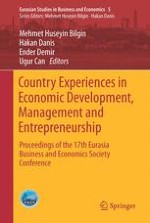2017 | OriginalPaper | Chapter
Conceptual Framework for Shari’ah Governance with Special Reference to the Muslim Friendly Hotel Sector in Malaysia
Authors : Zakiah Samori, Fadilah Abd Rahman, Mohd Salehuddin Mohd Zahari
Published in: Country Experiences in Economic Development, Management and Entrepreneurship
Publisher: Springer International Publishing
Activate our intelligent search to find suitable subject content or patents.
Select sections of text to find matching patents with Artificial Intelligence. powered by
Select sections of text to find additional relevant content using AI-assisted search. powered by
